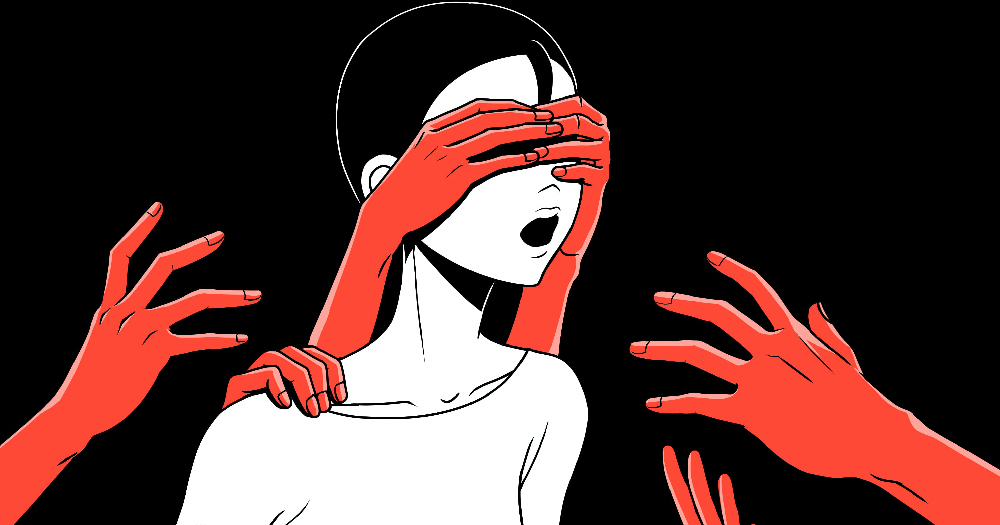For Fintan Warfield, the week of Monday, July 20 had been an otherwise unremarkable one, full of the fairly ordinary comings and goings which comprise the Sinn Féin Senator’s working schedule. Friday of that week was a sitting day, and he and his Seanad colleagues found themselves in the Dáil chamber, relocated there from the smaller space of the Upper House to better allow for physical distancing. Another week was almost chalked off.
That day’s proceedings opened with Order of Business, in which members of the Seanad raise all manner of issues they consider topical, in the hope of adding them to the agenda. Period poverty, the impact of lockdown on rates of domestic violence, a stimulus package for the economy and the growing prevalence of a pungent weed called ragwort in parts of the countryside were among the matters put on the public record by Senators. Notwithstanding new work protocols and political concerns arising from the pandemic, it was standard sitting day fare.
As Warfield’s speaking time arrived, he took to his feet in the drab expanse of the chamber, all deep mahogany wood and gaudy royal blue carpet, and empty-looking on account of the new public health compliant seating configuration. He took the opportunity to make known his intention to resubmit legislation from the previous political term, seeking to amend the Gender Recognition Act. The Act, passed without incident in 2015, is widely seen as deficient insofar as it excludes 16 and 17 year olds from being able to self-determine their gender, while offering no acknowledgement of non-binary experience. Through his Bill, Warfield hopes to correct these shortcomings and to open up a pathway to legal gender recognition for under-16s with parental consent.
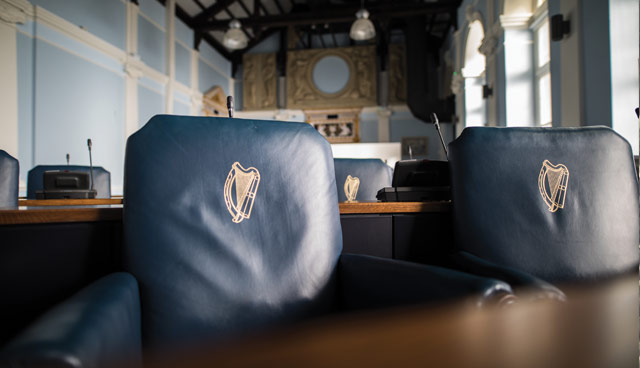
That evening, when footage of the day was made available on the Oireachtas website, Warfield clipped his segment and shared it with his followers on Twitter, common practice for digitally-inclined politicians. With that, the mundanity of the week ended. The tweet gained increasing traction; the garish shirt Warfield chose to wear that day drawing particular comment, some of it light-hearted. It is here that I insert myself into this story and offer disclosure: Fintan Warfield is my partner and the garish shirt is this writer’s own.
Interaction took a malignant turn, becoming openly, aggressively homophobic and transphobic. He was called a “degenerate” and told his gayness implied paedophilia.
Over the coming hours and days, attention turned to the substantive content of the video clip, namely Warfield’s advocacy for non-binary and young trans folk, and to the Senator himself. Interaction took a malignant turn, becoming openly, aggressively homophobic and transphobic. He was called a “degenerate” and told his gayness implied paedophilia. Threats of physical violence were made. In one instance, Warfield was told he would be “removed”. Personal posts from his other social media accounts [and my own] were drawn on and weaponised against his professional capacity. Unrelenting, this continued for several days. The following week, returning home from work, he was called a pervert on the street: language too closely mirroring that which had been seen on Twitter to be considered purely coincidental. He went to the Guards.
Warfield’s experience is grim but not uncommon, broadly exemplifying the rise of far-right discourse and sentiment online in Ireland, and showing signs of spilling into offline expression too. Increasingly, a vocal group of social media users feel enabled to articulate extremist views and hateful rhetoric against whole groups of people, including migrants, members of minority religions, and the LGBTQ+ community. They can be found most commonly on Twitter, but increasingly defer to less well known and more private, unmoderated channels like Telegram. Some have public profiles, many are anonymous accounts. They may associate with fringe political parties and command a not insignificant amount of followers of their own.
These users strategically exploit otherwise well-meaning people’s potential to have sincerely held concerns around emotive issues, such as housing and homelessness or child protection. They deploy disinformation as a means of galvanising support for, and furthering their own political aims, while stoking discord. It is seen, for example, in assertions that migrants are adding to Ireland’s housing crisis, or in claims that the LGBTQ+ community is accepting of “paedosexuals” and intends to add the letter P to the community acronym. By creating fears about things that are not actually happening, and manipulating polarising issues, so-called “disinformation actors”, like people on the far-right, conspiracy theorists and anti-vaccine advocates, draw people in, instilling fear and fuelling anger toward other groups.
Increasingly, a vocal group of social media users feel enabled to articulate extremist views and hateful rhetoric against whole groups of people, including migrants, members of minority religions, and the LGBTQ+ community.
Eileen Culloty is a post-doctoral researcher at the Dublin City University Institute for Future Media and Journalism, where she leads research on countering disinformation as part of Provenance, an EU-funded project to develop new tools for improving how information is shared and received on social media. “The work we do is about how to help people evaluate the content they see,” she tells me over the phone.
I ask Culloty to map a trajectory of the rise of this kind of rhetoric online, its increasing prevalence plain to see for even the half-observant social media user. The key development, she says, has been changing patterns in media consumption in recent months and years, with ever higher numbers of people turning to social media over traditional media: “Social media platforms were not designed to impart information or for public debate. They are designed to keep us engaged. Things that make people angry, or fearful or outraged keep people engaged.” Culloty and her team of computer scientists and psychologists are working to help people better understand how a piece of content is making them feel, before they buy into it and share it further.
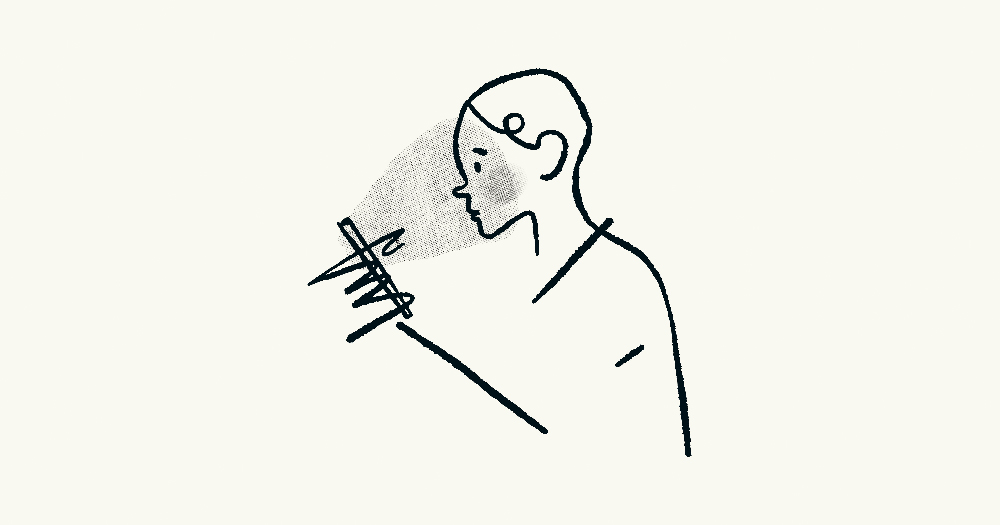
The coronavirus pandemic is low-hanging fruit for far-right actors, then, offering them an opportunity to capitalise on people’s frustrations around ongoing restrictions, push conspiracy and exploit fear. In recent times, a group of hundreds staged an un-masked sit-in on Dublin’s Grafton Street, before returning to homes across the country, the latest in a series of such demonstrations. Similar events held in recent weeks have included members of far-right political groups, including the National Party and the Irish Freedom Party, and supporters of QAnon; a conspiracy theory which believes in a satanic global paedophile ring. While it can’t be said that everyone attending these events are far-right extremists, the ability for organisers to attract people in is apparent. The sun is shining and they are making hay.
The coronavirus pandemic is low-hanging fruit for far-right actors, then, offering them an opportunity to capitalise on people’s frustrations around ongoing restrictions, push conspiracy and exploit fear.
Among the visual aids at that recent sit-in were placards bearing messages like, “Truth Freedom and Light”, “This War Is On Truth” and “What Scares You More? A Government With A 99% Lying Rate … Or A Virus With A 99% Survival Rate?”, multiple tricolours and hi-vis vests stamped with the phrase “Irish Patriots”. The association of far-right actors, online and in-person, with some notion of Irish patriotism is a known feature of these individuals and groups. “To present themselves as patriots they have to first create these enemies that are a threat to ‘the nation’: migrants, LGBTQ+ people, the media and political elites,” Culloty explains.
All of these cues were in evidence outside the gates of Leinster House in July, weeks before Warfield’s own online run-in with the far-right, at a rally entitled, ’Save the Children’. It was organised to call for the resignation of Minister for Children, Disability, Equality, Integration and Youth, Roderic O’Gorman. He was the subject of extended online abuse for appearing in a photograph with LGBTQ+ activist Peter Tatchell, himself accused of supporting paedophiia in a letter that, he says, was wilfully misinterpreted by homophobes. At the rally, supporters of the National Party held a banner calling to “Protect The Innocent” and “Punish The Guilty”, illustrated with silhouettes of children playing – and a noose.
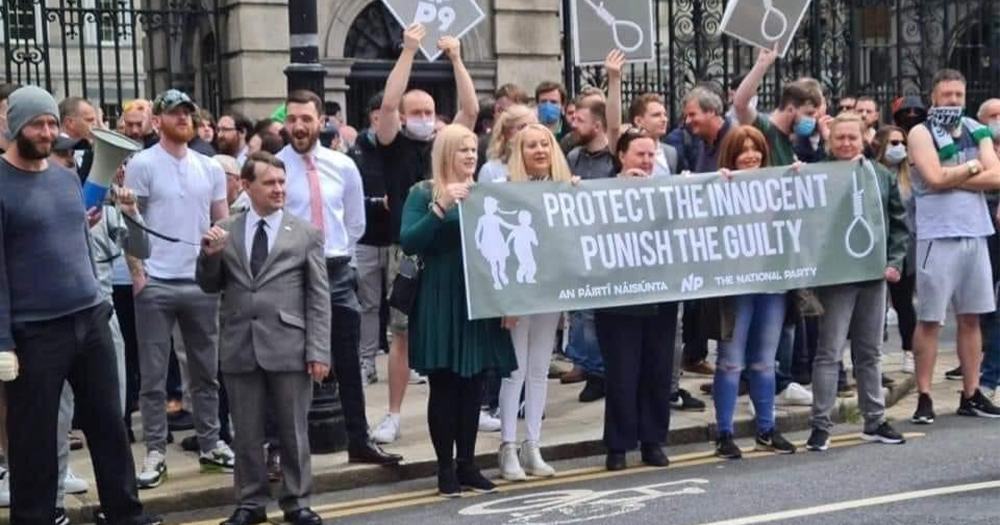
Months after, I’m at the Department of Children and Youth Affairs to meet O’Gorman. I am interviewing the Minister minutes before his scheduled cabinet meeting, which will see Dublin put on Level 3 lockdown. I appreciate the surreality of it all.
O’Gorman tells me that he never experienced any serious trolling before that episode. “It was intense and then it got super intense. When I saw fringe political parties capitalising on it for attention for themselves, I was conscious that there was a plan behind it.” That the Minister’s fitness for his brief would be in question due to his sexuality is a well-worn tactic: his predecessor, Katherine Zappone repeatedly had her suitability for the role questioned by anonymous far-right trolls on account of her being a lesbian. O’Gorman tells me that he is still on the receiving end of harmful content.
The ‘Save the Children’ rally organised against O’Gorman was a startling and potent enough display of homophobia, couched in ideas of child protection. Aoife Gallagher is an analyst for the Institute for Strategic Dialogue, a non-profit think-tank working to counter extremism. The most common theme she has seen in Ireland in recent months, she says, is that children are somehow in danger because of LGBTQ+ people: “It’s a tried and tested method of anti-LGBTQ+ and far-right groups. The lives of children is an extremely emotive topic and is an easy way to elicit a response.”
Gallagher sees it too as an attempt to block progressive, inclusive sex education in schools, citing the trope that to teach children about LGBTQ+ people is to somehow “poison their minds”. As well as the review of the Gender Recognition Act, Relationships and Sexuality Education for primary and post-primary students is on the agenda for the current political cycle. Minister O’Gorman already anticipates that fault-lines will be drawn by the far-right through both of these matters.
Gallagher sees it too as an attempt to block progressive, inclusive sex education in schools, citing the trope that to teach children about LGBTQ+ people is to somehow “poison their minds”.
While O’Gorman describes seeing the protest outside the Dáil as unpleasant, he acknowledges that it wasn’t solely about him, that it was an excuse for various groups to come together, like what is seen today with anti-mask protests. He says: “It’s an attempt to gain publicity and new members. The more outrageous a thing they say, the more coverage they get and the more likely they’ll get their message out there.” He is concerned about the growth of the far-right in Ireland, and considers it a threat to already marginalised groups. His party colleague and Lord Mayor of Dublin, Hazel Chu, he tells me, has endured online abuse since first running for Dublin City Council.
Nobody I spoke with for this piece is convinced there is any kind of will or sense of urgency on the part of social media companies to moderate their spaces from far-right content. Eileen Culloty remarks on how long it took Gemma O’Doherty to be removed from Twitter, despite the persistent flagrancy of her content. Admittedly, she says, it would be an enormous task for a social media company to take down abusive and harmful content from its platform given the extent and depth of it. I find it hard to accept that resources could not be mobilised, given the profits these companies generate.
Nobody I spoke with for this piece is convinced there is any kind of will or sense of urgency on the part of social media companies to moderate their spaces from far-right content.
Aoife Gallagher, meanwhile, calls on individual governments to protect their vulnerable populations, those who are most exposed to malicious far-right content. Both herself and Culloty consider legislation as necessary to will these companies into action and to regulate their platforms. Culloty refers to Germany’s Network Enforcement Act, effectively a hate speech law, which requires social media platforms to take down harmful content within 24 hours. And what of these social media users crying “free speech”, I ask her? “Freedom of speech is not freedom from consequence,” she says.
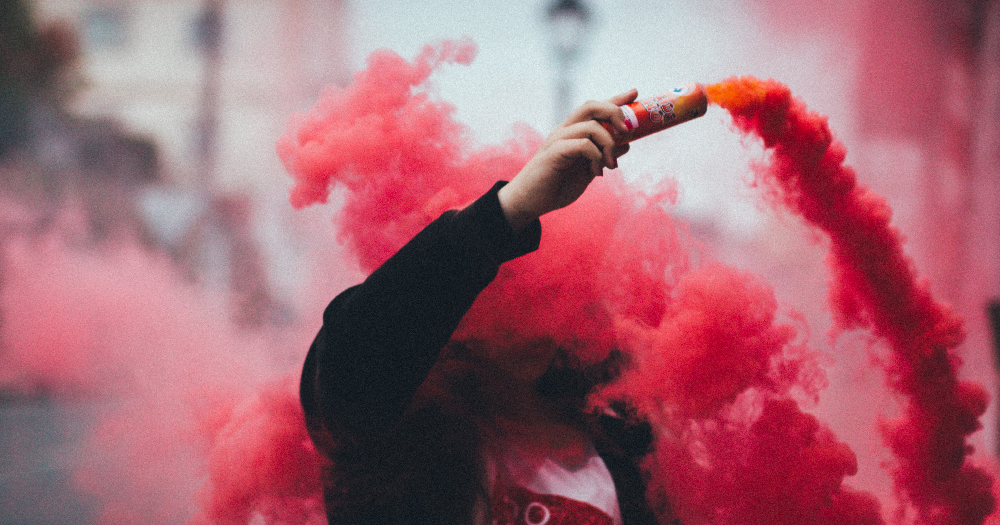
While O’Gorman welcomes the “strong commitment” in the Programme for Government for an Online Safety Commissioner, who would have the capacity to engage with the platforms and demand codes of conduct and the take-down of harmful content, the key responsibilty has to lie with social media companies, he says. Arguably, Ireland is at a juncture in terms of dealing with the rise of the far-right, having moved beyond a point of being able to simply dismiss it. One hopes that such a commitment can be delivered sooner than later, that such an online safety office, when established, is robust, and that the issue does not fall between two stools, the buck passed between State and private sector. One hopes that O’Gorman’s personal experience might play some part in helping expedite that objective.
While political figures like Fintan Warfield and O’Gorman may be relatively robust, able to rely on extensive professional and personal networks of support, there are many other social media users who may be subjected to far-right hostility, who do not have the resilience demanded by a career in public life. It is the welfare of that much more ordinary social media user we must not lose sight of: those who may be more vulnerable and less well-equipped to disengage and put the phone down.
Be it a taunt of “alright, pervert”, chants of “paedo” on Kildare Street, or outbreaks of violence between demonstrating and counter-demonstrating groups, offline manifestations of grimly familiar online behaviour should be considered deeply alarming. Arguably, the arena is shifting. Recently, well-known LGBTQ+ activist, Izzy Kamikaze was assaulted while observing an anti-mask protest, which comprised far-right elements. At the time of writing, the National Party had overseen another in-person demonstration during which there were violent outbreaks.
While it is important not to give these people more credit than they are due, or to suggest that they have more influence than is actually the case, there is a worrying momentum to the organisation and mobilisation of such groups and individuals.
While it is important not to give these people more credit than they are due, or to suggest that they have more influence than is actually the case, there is a worrying momentum to the organisation and mobilisation of such groups and individuals. They are a small but intensely vocal minority, and their charisma and propensity to capitalise on current social and political affairs for their own gain cannot be underestimated.
After all, those are, effectively, the same conditions that carried the election of Donald Trump and other far-right leaders in Brazil, Hungary and elsewhere, and the Brexit referendum result. At home, the ability of many of these far-right actors to capture the imaginations of ordinary people is an urgent concern, when one appreciates the role they can play in hindering progressive politics and social change. Be it meaningful reform to how young people are taught about sex and relationships, or ensuring non-binary and young trans folk are seen and listened to, the far-right, online or offline, constitute a credible threat to the wellbeing of our community and to the kind of society we wish to live in.
© 2021 GCN (Gay Community News). All rights reserved.
This article was published in the print edition Issue No. 365 (December 1, 2020). Click here to read it now.
Support GCN
GCN is a free, vital resource for Ireland’s LGBTQ+ community since 1988.
GCN is a trading name of National LGBT Federation CLG, a registered charity - Charity Number: 20034580.
GCN relies on the generous support of the community and allies to sustain the crucial work that we do. Producing GCN is costly, and, in an industry which has been hugely impacted by rising costs, we need your support to help sustain and grow this vital resource.
Supporting GCN for as little as €1.99 per month will help us continue our work as Ireland’s free, independent LGBTQ+ media.
